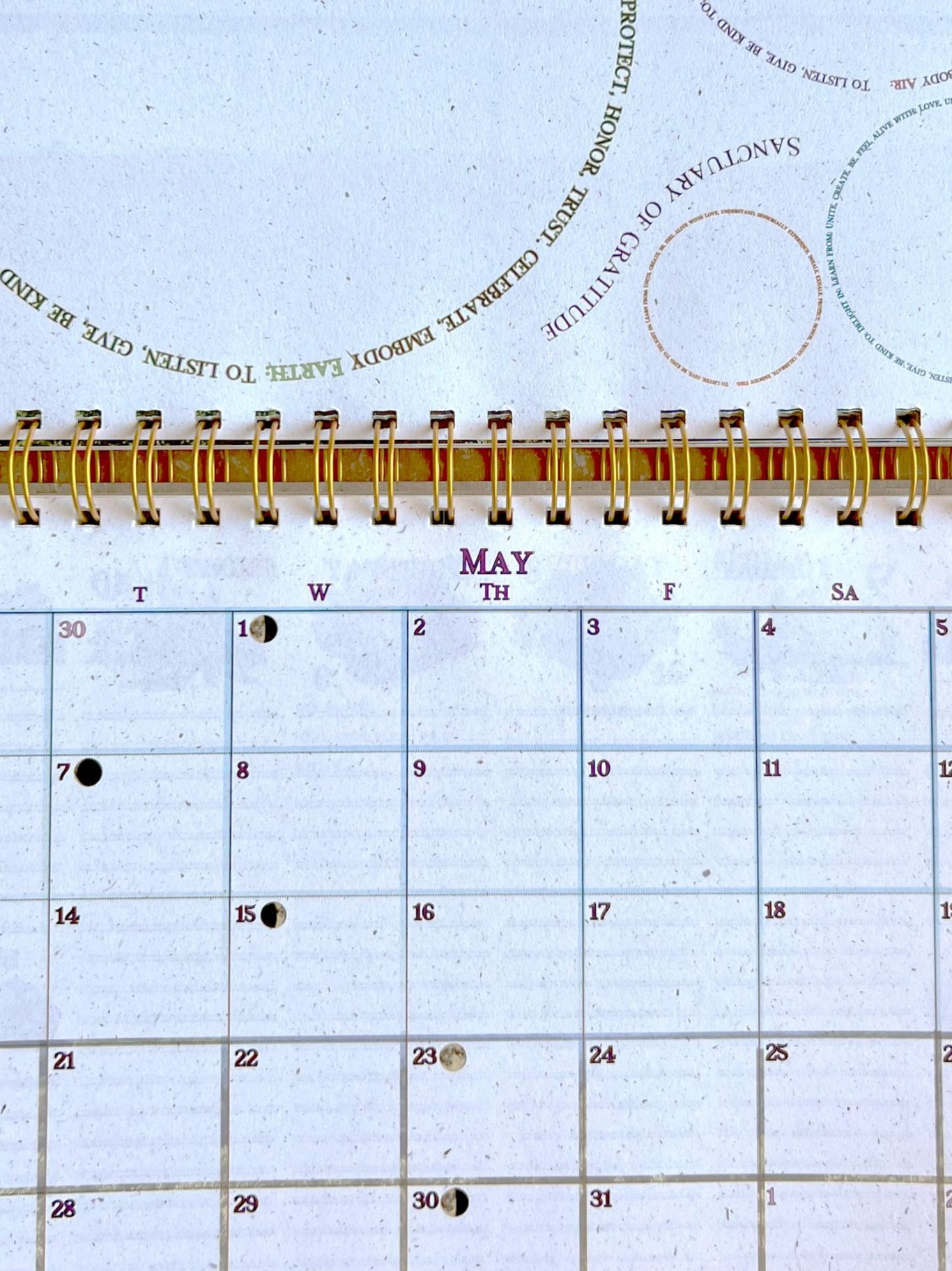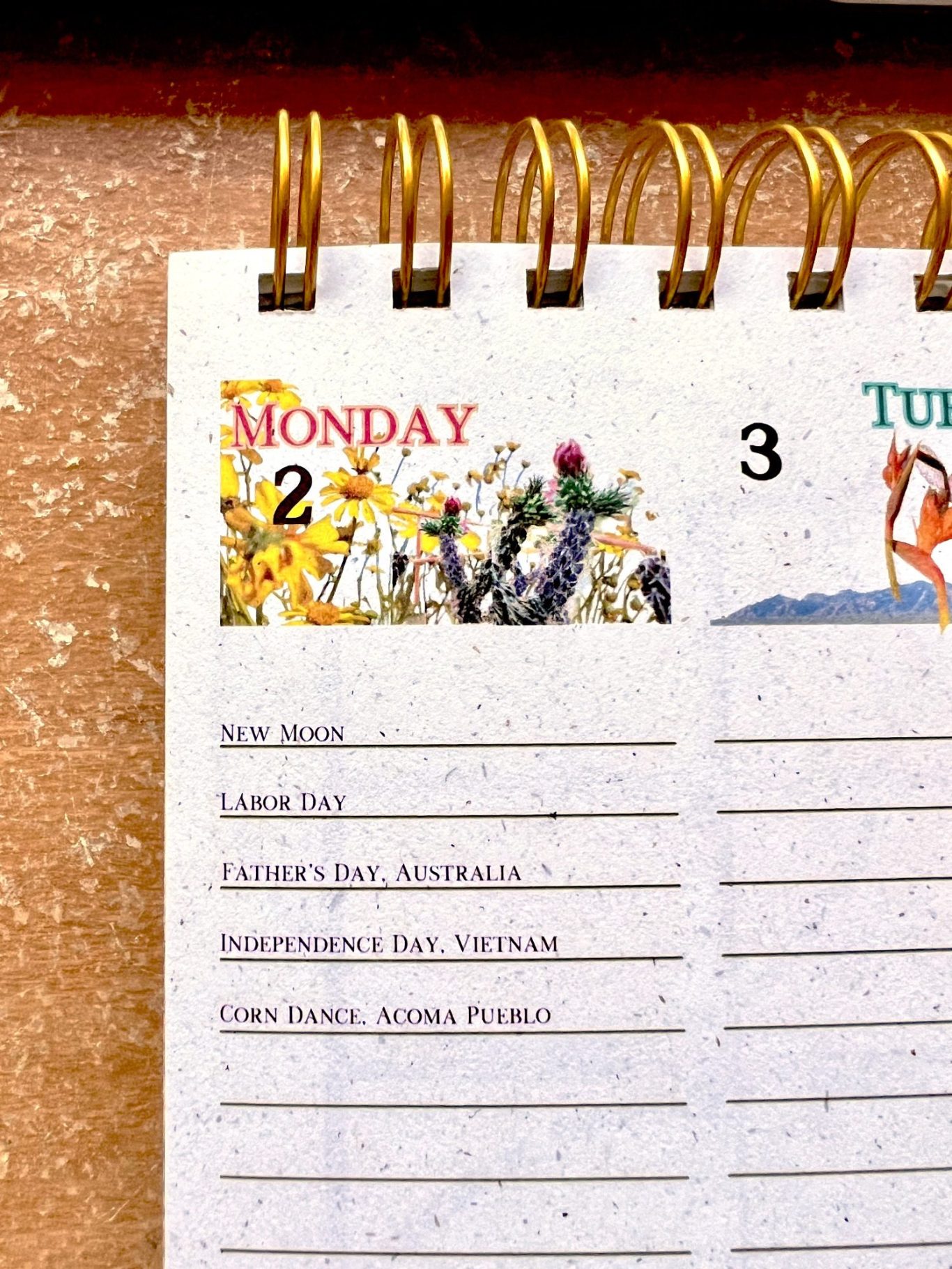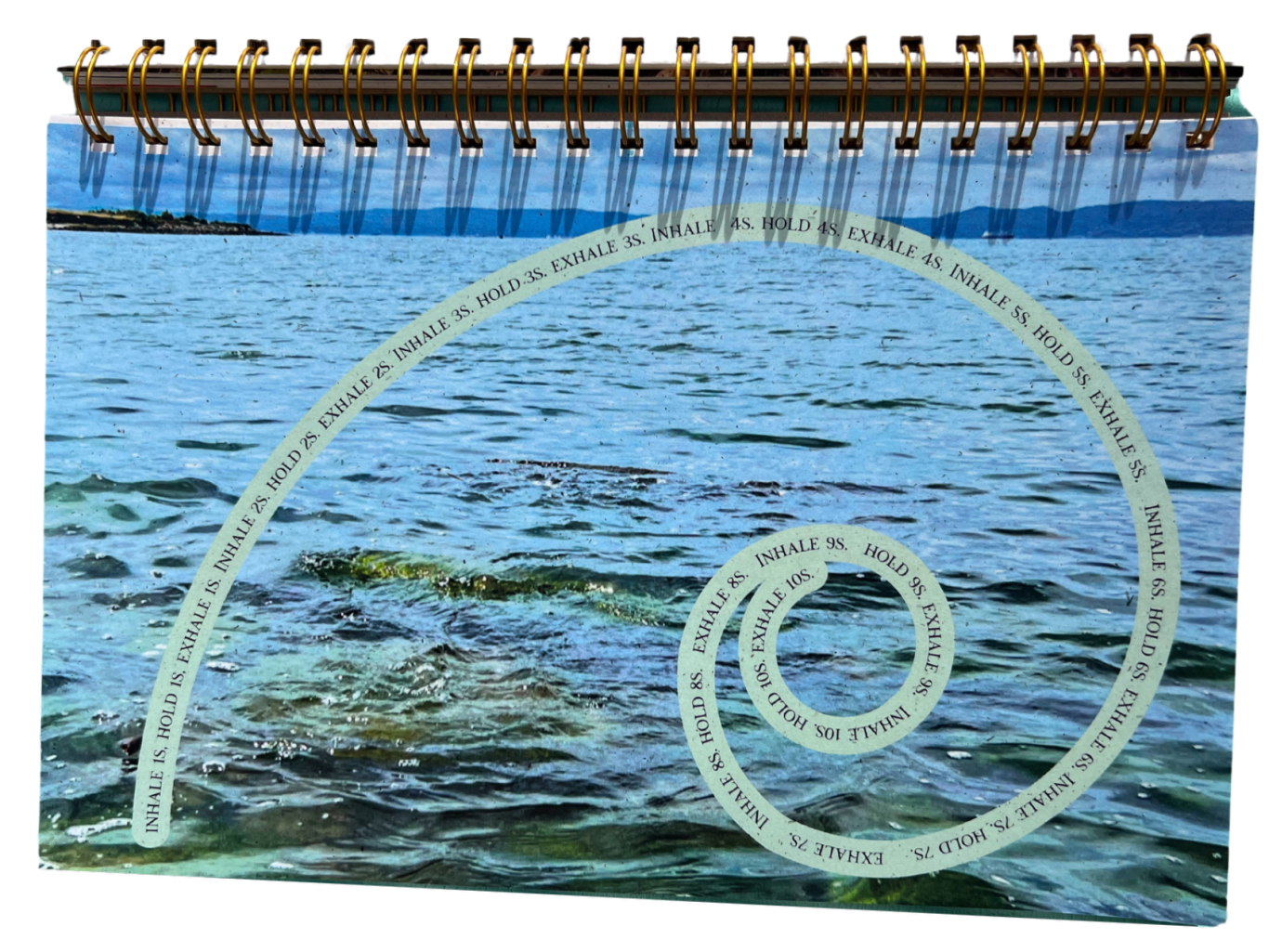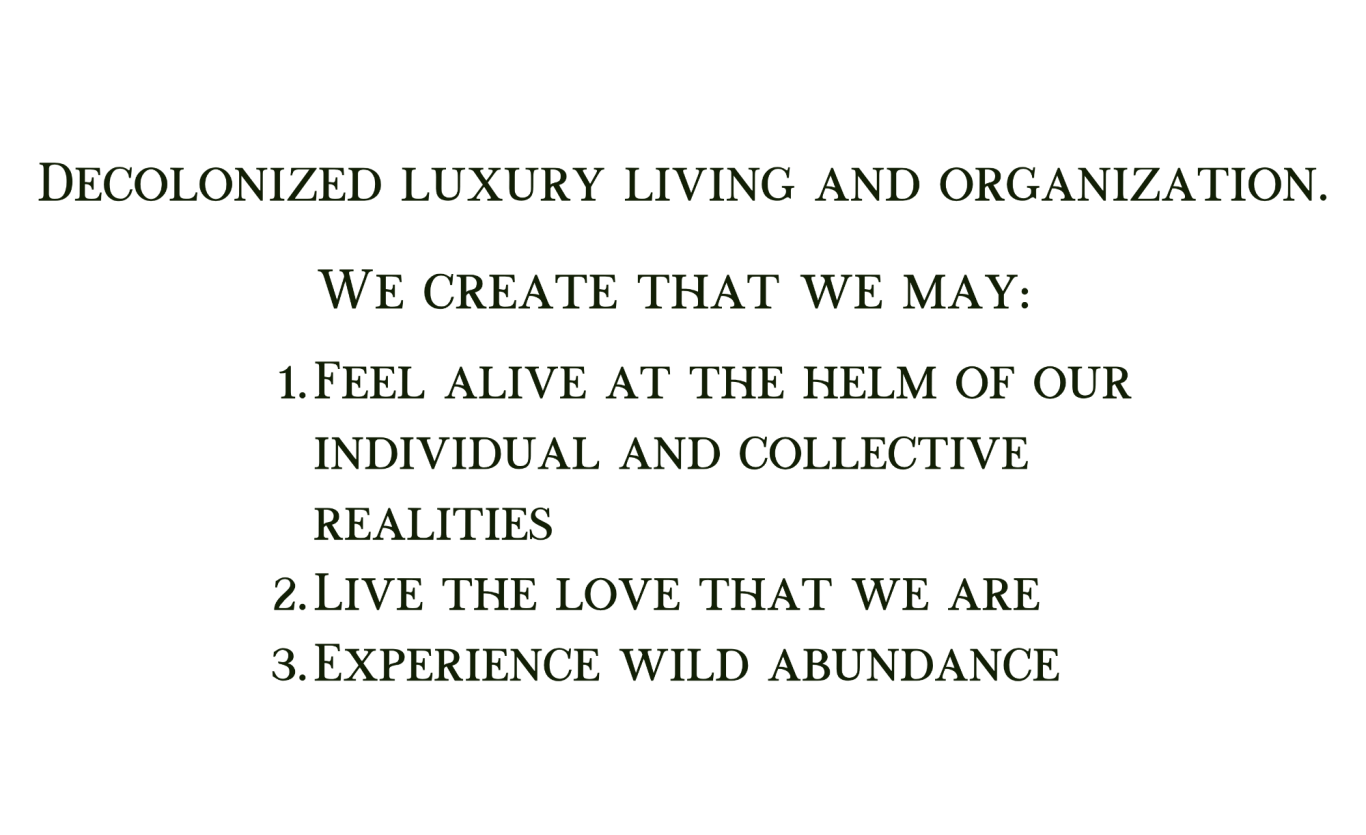Environment-honoring Decolonized Luxury
Organizational Sanctuary
$222.22
Metamorphose your wild abundance while honoring the collective one.
We decolonized eco-honoring luxury to craft this tool of cultural creation. Featuring weekly planning tools, monthly rituals, and plantable handmade artisan cotton paper embedded with non-GMO cherry tomato and thyme seeds.
Deepen the resonance of your internal landscapes with celestial metamorphosing in the spirits of earth, air, water, and fire. Live your intuition while organizing your goals in alignment with lunar waxing and waning. Tend to your metamorphosis while tending to a plant who in turn nourishes you. Let us create the reality of love we deserve.
The amount of every carbon emission, including from this webpage, is not only neutralized, but also removed from the atmosphere via native plant and fungi cultivation.



Decolonizing eco-honoring luxury
stationary, office, and school supplies.
Handmade artisan non-GMO thyme and red cherry tomato seed-embedded paper. The core of every offering.

PARAKATA (Monarch Butterflies) have 4 wings that propel their flight. So does D:IZE.
- Redefine luxury as a means of restoring our relationship with land, water, air and fire.
- Redefine luxury as a place where all Indigenous Peoples— especially disabled, queer, Two Spirit, and trans— belong and are protected and honored as emissaries of true luxury: to experience life as wild abundance.
- Create the space of our company as a sanctuary where Indigenous Peoples and our accomplices experience and sustain self-determination in this lifetime!
- Attract and create with fellow souls living the love that they are.

A note on paper:
Hemp paper can be recycled 7 times vs. tree paper which can be recycled only 3 times.
Tree paper contains 30% cellulose, whereas hemp paper contains 85% cellulose.
Tree paper has more short fibers and acidic characteristics— it is more susceptible to sunlight, heat, and dampness than hemp paper.
Hemp plants can be harvested after 4 months, as opposed to 8-12 years (softwood trees) and 20-80 years (hardwood trees).
Four times more hemp vs. tree paper can be produced on the same amount of land.
©2024 D:IZE LLC. All rights reserved.
We need your consent to load the translations
We use a third-party service to translate the website content that may collect data about your activity. Please review the details in the privacy policy and accept the service to view the translations.



